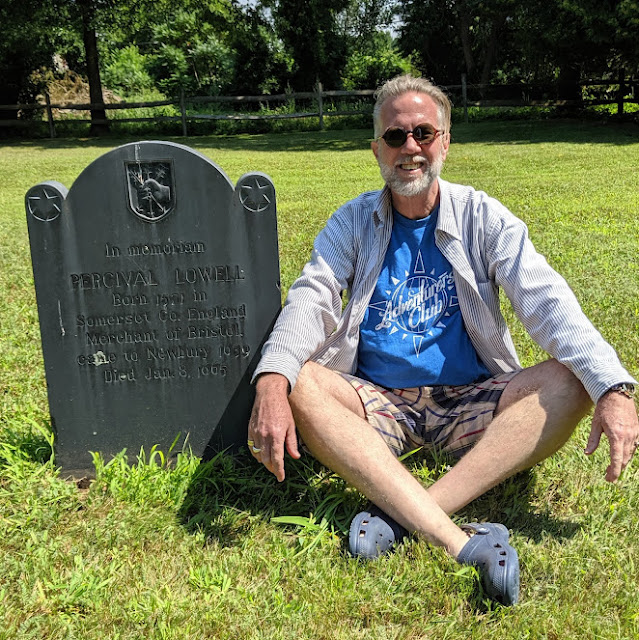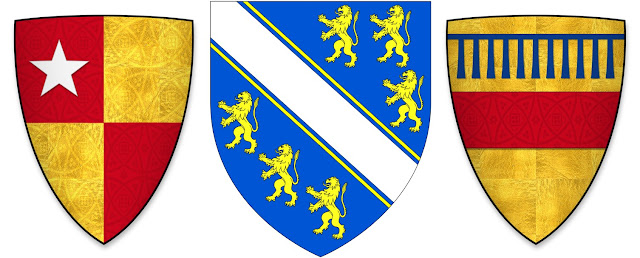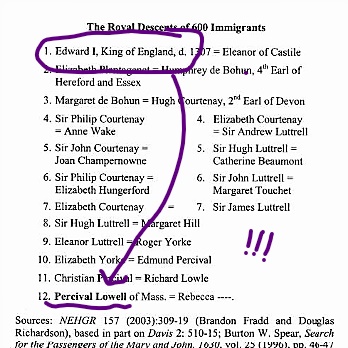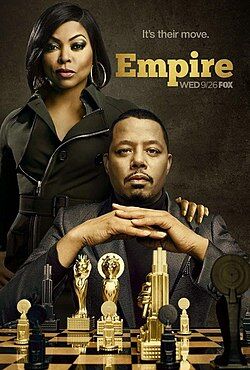After a lifetime of daydreaming and two years of understandable yet disappointing postponements, my husband and I should be making our first trip to the UK later this year--fingers crossed! Along with all of the usual sightseeing (and a few literary pilgrimages I want to make), we are also planning to visit places associated with some of my British ancestors.
I have a fair amount of British blood, my DNA results notwithstanding. Eight of my sixteen great-great grandparents have British roots, so half of my ancestry hails from the UK, a much larger percentage than any other country or region. But they didn't come here recently. All of those families' arrivals in America predate the Revolutionary War, a timeframe for which records are often scarce or vague, online family trees frequently riddled with errors, either accidental or through wishful thinking. Who wouldn't want to be George Washington's many times over great-grandchild, or claim Henry VIII as "Great Grampa Tudor"?
For that reason, what records do exist have been pretty thoroughly vetted, particularly for those who have those famous names or titles. And of course, wealthy, educated families were more likely to have records beyond the usual birth and death certificates or marriage licenses, although many families from that era did not necessarily even record or keep those. Wills, dowries, land records, biographies, mentions in extant letters or diaries.... All of these, except in the luckiest of instances, are more likely the province of the distinguished or notorious than those forebears who were farmers or laborers.
Which leads me to Gateway Ancestors. Although actual numbers vary slightly, there are believed to be just a few hundred of them: European men and women who came to America during the Colonial Era with proven, documented connections to royalty or aristocracy. So if you can connect yourself--legitimately!-- to a Gateway Ancestor, you are descended from someone posh.
My gateway ancestor is Percival Lowell (1571 - 8 Jan 1664), one of my paternal 10x great-grandfathers. I blogged about him once before, back in 2013. In 2019 on a trip to New England, I visited his environs and final resting place in Newbury, Massachusetts.
 |
| Your Humble Blogger with the Commemorative Headstone for Percival Lowell. Burying Ground of the First Settlers, Newbury MA, Aug 2019 |
In that earlier post I wrote that the Lowell family "was well-to-do; there is believed to have been aristocracy on both sides." Indeed. At the time of that earlier post I was just beginning genealogy, trying to work across my family tree, (grandparents first, then great-grandparents next, etc) rather than going straight back as far as I could through specific lines. By the time one reaches the 10x gg generation, we each of us have four thousand and ninety-six direct ancestors alone! It was a lot of work just getting that far, although, by no means do I know even half of their names. Remember all those record-less farmers and laborers? And researching back, I generally stopped once that ancestor "crossed the pond." It was enough of a learning curve to figure out the ins and outs of diverse American documents. Researching Europeans was work for a later date. And besides, an Ancestry.com World Membership ain't cheap.
Cut to today. I'm more skilled, and have done genealogy longer. I dig farther back, and in this case, had specific goals as I mentioned at the top: finding my British ancestors who might still have meaningful places to visit from their time. That's how I came to revisit Percival Lowell, who--at 68 years old!-- had emigrated with some of his family from Bristol, where he had been a successful merchant. A kind reply from the Research Room Co-Ordinator, Bristol & Avon Family History Society let me know that there was little of Bristol today that Percival would recognize, but was I aware that he was a Gateway....
So Grandpa Percy is my Gateway Ancestor, but gateway to whom? Heading onto Google, the first thing I came to was a fantastic (meaning well-researched and documented) website called the Magna Carte Project. Magna Carta! That is posh! And my Percival Lowell was descended from a--no, make that two--surety barons!
Which was thrilling, until I realized I didn't actually know that much about the Magna Carta, and certainly had no idea what a "surety baron" was.
 |
| One of the few surviving copies of the Magna Carta. |
Time for more research and reading.... As I often mention, one of the things I like best about genealogical research is how much more I learn about than just my own family. History, geography, different cultures and more. Anyway. I am certainly no expert, but after a few books and BritBox documentaries I feel I have at least a modest grasp of the Magna Carta and surety barons.
To save you the trouble and keep things moving: there were twenty-five of those barons, and they were entrusted to ensure (hence "surety") that King John held to the terms of the Magna Carta, a document now considered the first constitution, from which almost all modern democracies descend. This "Great Charter" for the first time basically said a King is not above the law, creating a separation of powers; what we call the Executive and Judicial branches.
(Sometimes genealogy is not just about history, but also current events, alas. I told you it was educational....)
Anyway. Having learned all that, I returned to which barons, and how they fit into my family tree. Turns out they are both 24x great-grandfathers of mine, on Percival Lowell's maternal side: Robert de Vere, Third Earl of Oxford (c 1165 - 25 Oct 1221), and Sa[h]er de Quincey, First Earl of Winchester (c 1155 - 3 Nov 1219). I have to admit I was excited that one of 'em was named Robert. If you want to learn more about them and their other descendants, you can check out Burke's Peerage--or Wikipedia.
While I was learning about them, then adding their descendants and spouses' names and dates into my family tree, certain other surnames occurred and reoccurred: de Beaumont, de Bohun.... Apparently there was a lot of intermarriage back then. Flipping back and forth among these recurring names, I discovered that there was a third surety baron in my line through Percival Lowell: Henry de Bohun (1176 - 1 Jun 1220), First Earl of Hereford (and Constable of England), also a 24x great-grandfather.
I wrote the Magna Carta Project folks and asked why this was not in Percival's bio. Surely I was not the first to make this connection? No, it was known, and well-documented elsewhere. The Magna Carta Project volunteers work to prove at least one connection; the rest is up to you. Not unlike the Mayflower passengers, about whom I learned--and wrote about--earlier when finding those American ancestors, Medieval English aristocracy was a very closed society. In part because of all the intermarriage, if you were related to any one of them in either group you were almost certainly related to a few. In fact, it would be highly unusual to be related to just one!
 |
| [Left to right] The coats of arms for the de Vere, de Bohun, and de Quincey families. End images: Rs-nourse-Own work, CC BY-SA 3.0. Center image: Sodacan-Own work, CC BY-SA 3.0 |
Lovely as those coats of arms are, I am entitled to none of them. (Believe me, I checked.) They descend through male lines--as do the titles--and in fact, it was Percival Lowell's mother, Christian Percival (c 1549 - aft Jun 1577) who is my link to the nobility. The women in my family seem to be the ones who link back to fascinating subjects, whereas many of my male forebears are dead ends within a couple generations. Anyway.
Continuing to research and attempting to sketch in some of that noble, if confusing, lineage (so many Humphreys! So many earls!), I went back to the list of Gateway Ancestors, greedy for more. With so many ancestral names from the Colonial Era in my family tree, despite not knowing them all, I suspected I might find another Gateway. And there he was: Thomas Ligon (bef Jan 1624 - bef Mar 1676), who emigrated to Virginia in the 1640s. Ligon! I have Ligons/Lygons in my tree!
Shaking aside brief disappointment that Thomas Ligon was the gateway to a baron I already could claim, Henry de Bohun, I still wanted to see how Thomas fit in with my Ligons. It was through his 3x great-grandmother, Anne Beauchamp (c 1472 - 22 Jul 1534) that Thomas Ligon had the link to nobility. C'est toujours la femme, as my Norman ancestors might have said. So there's that. Although I already had Henry de Bohun (collect 'em all!), any disappointment soon passed part due to my next discovery.
 |
| From "The Royal Descents of Six Hundred Immigrants," by Gary Boyd Roberts, 2006 ed. |
Baron, schmaron... I'm a royal! A direct descendant of Edward I, old Longshanks himself, the Hammer of Scotland....
However. It is estimated that Edward I currently has a few hundred thousand living descendants. Twenty-odd generations adds up, particularly as many of the earliest noble kinsmen sometimes had multiple marriages, sometimes with a dozen children or so with each wife. And that's not even counting all the bastards....(Simple math, for those of you so inclined, should indicate numbers in the millions, but that doesn't account for pedigree collapse, exacerbated by all those aristocratic intermarriages.) Whatever the actual number, I'm definitely not unique, so won't be busting out the strawberry leaves and ermine.
And now that I've reached royalty, yes, that means I am also descended from William the Conqueror and even Charlemagne, which personage I have only previously considered as a character in the musical Pippin.
 |
| John Rubinstein as Charlemagne in the National Tour of the 2013 revival of Pippin. Signed, stage-used prop to benefit BC/EFA from Your Humble Blogger's collection. |
Charlemagne was not the only sovereign in my newly discovered family to be featured on stage and screen, of course. Bad King John, Edward I's grandfather (so my 23x gg) was the main character in the eponymous The Life & Death of King John, the earliest, chronologically, of the Histories purported to be written by William Shakespeare. I say purported because I now feel an obligation to stick up for Edward de Vere (12 April 1550 - 24 June 1604), a tenth cousin, fifteen times removed, as the more likely author. Family sticks together.
Or not. King John, his brothers and parents (Henry II and Eleanor of Aquitaine, 24x ggs) are the subject of James Goldman's 1966 play and subsequent film The Lion in Winter. It concerns the plottings and machinations of nearly all the characters as they scheme to decide who should succeed Henry II, who at one point quips "I've snapped and plotted all my life. There's no other way to be a king, alive, and fifty all at the same time." While not entirely accurate historically, or perhaps because of that, the film has entered popular culture. The recent television series Empire is a modern spin on the same story.
 |
| Taraji P Henson and Terrence Howard as Cookie & Lucious Lyon. Ad for the fifth season of Empire. |
I've added Empire to my watch list, along with screen versions of several Shakespeare deVere plays, and plan to rewatch both Ivanhoe and the Errol Flynn Robin Hood; the stack of library books on the Plantagenets and their times keeps growing. Pushpins on my map of England of places to visit on vacation are nearly crowding each other out as my plans keep growing while I continue to learn more.
To quote The Lion in Winter: "Kings, queens, knights everywhere you look and I'm the only pawn."